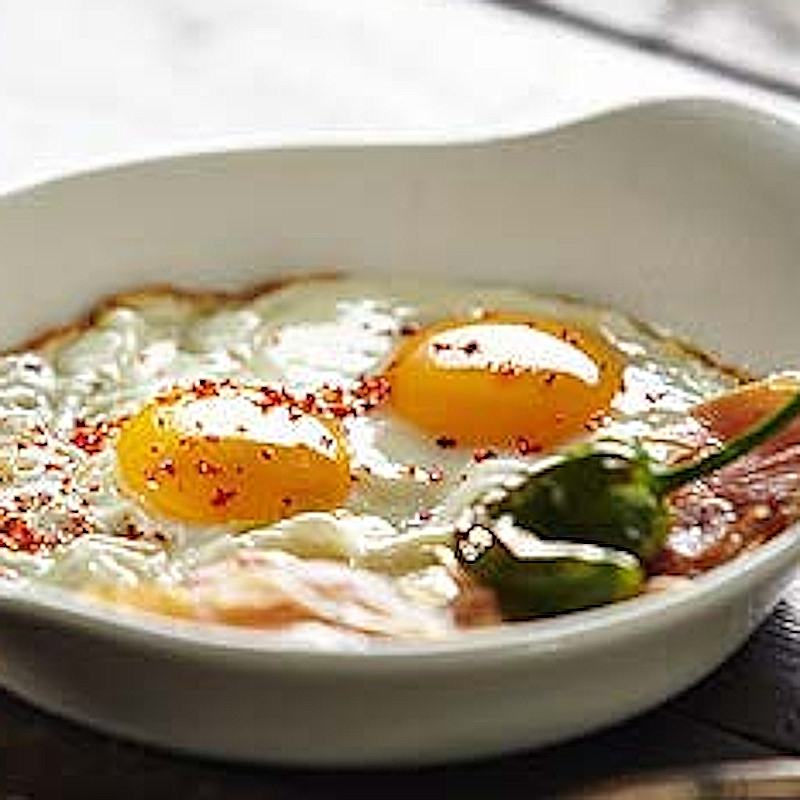Arroltze ta xingar - Fried eggs with ventrèche, Xingarra
Recipe :
Fry your Xingara without oil or butter
Once it has rendered some fat
Set aside
Cook the eggs
Arrange the eggs and Xingara on a plate
Sprinkle with Espelette pepper
Serve
In the Basque Country, ventrèche may be called artekia, but is better known as xingar. It is often served grilled in a pan or on a plancha to accompany dishes. The best known of these is 'Arroltze ta xingar', the Basque bacon and eggs.
 Garanties sécurité
Garanties sécurité
(à modifier dans le module "Réassurance")
 Politique de livraison
Politique de livraison
(à modifier dans le module "Réassurance")
 Politique retours
Politique retours
(à modifier dans le module "Réassurance")
Jambon de bayonne et salaisons de la Ferme Elizaldia ...
La ventrèche, Xingarra de la Ferme ElizaldiaTout d'abord, nous sélectionnons une viande de qualité : les ...
|
|
Nos points de venteBidart · La Ferme à Gamarthe · Saint Jean Pied de Port · Saint ...
|
|
Plats cuisinés & confitsSavourez un concentré du Pays Basque dans nos plats cuisinés ...
|
|
Jambons secsDu plus tendre au plus se nous vous proposons deux jambons ...
|
|
VENTRÈCHE, XINGARRA
The secret of making ventrèche
Ventrèche is a very simple product, and at Elizaldia Farm we make it just like our grandparents used to do on the farm. First of all, we select quality meat: the leanest, thickest bellies possible. Then, like other cured meats, we go through the salting stage. To ensure that the salt and spices set in properly, we put the brisket through a churn. This tool performs a mechanical movement and evenly distributes our spices for better absorption into the meat. Finally, the breasts are placed in the drying room for a few months. It's as simple as that!
Ventrèches come in two formats: flat and rolled. The recipe is the same, except that the rolled version is rolled up during drying to preserve the spices.
In the Basque Country, ventrèche may be called artekia, but is better known as xingar. It is often served grilled in a pan or on a plancha to accompany dishes. The best known of these is "Arroltze ta xingar", the Basque bacon and eggs. Traditionally, after the first milking in the morning, the peasants would get together to eat their breakfast with ventrèche and a fried egg. This was necessary to build up their strength for a good day's work and, above all, to carry on with the rest of the farm chores.



